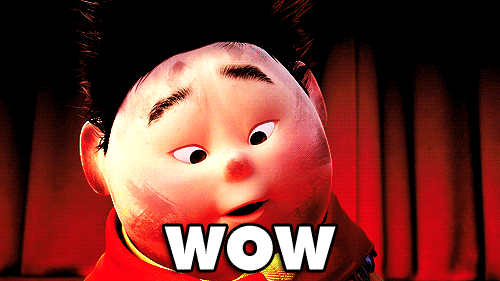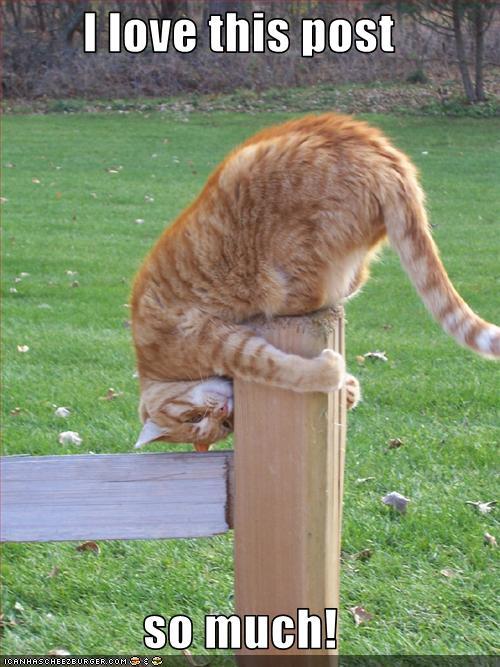When one sits down to a meal, the temptation is always to start with the best dish. This is exactly what we shall do now.
Episode 11 was good, and it contained much useful material that moved the story forward, but it was sandwiched between two spectacular ones. It was like when you see one episode of a TV serial, conclude that this is the best yet and difficult to top, and 2 days later, along comes another episode that makes you say exactly the same thing all over again. With Episodes 10 & 12, Jodha Akbar passed this test, and did it in style.
So the first was the crackerjack No.10, which dazzled with Jalal's derring do and his ice cold nerve. The other was the very powerful No. 12, which had what I can only describe as a Power Point presentation of spectacular set piece scenes that took your breath away. So No.11 suffered by comparison, besides not having too much to analyse. So we shall take it up at the end, and skip to No.12.
There
were 3 very important and striking
scenes in this episode: Jalal-Maham Anga 1, Jalal-Bairam Khan, and Jalal-Maham Anga 2, that not only
set out the (changing) relationships between the vital troika of Maham Anga-Jalal-Bairam Khan, but were exceptionally well written and
enacted. Rajat's Jalal is always a sure
shot, but here he was ably seconded by Bairam Khan, and even more so by Maham
Anga.
The three played off each other to quite spectacular effect, and their lines were superb. No wonder then that they were splendid, and that the two scenes between Jalal and Maham Anga were pure gems, polished, scintillating gems.
Then there was the far less impressive scene between Hamida Bano and Sheik Salim Chisti, which gave us a reassuring glimpse of Jalal's future. Let us take these scenes one by one.
Jalal-Maham Anga 1: If the narrative here crackled and seethed, it was with subterranean intrigues , as two fierce opponents - Mahaam Anga and Bairam Khan - feinted and circled each other as each strove for supremacy in her/his hold on Jalal. He is their be all and end all, for both exist only thru him and his status as the Shahenshah, and without him, they would be nothing. By episode end, I, being a bit of a female chauvinist, was greatly pleased when Mahaam Anga proved, beyond a shadow of a doubt, that in political intrigue as in its domestic equivalent, the female of the species is deadlier than the male. 😉
She
begins perfectly, by getting in on the first base, ready to greet Jalal on his
arrival at the camp, whereas Bairam Khan goofs
up be being out riding at this vital moment. The smile that lights up Jalal's face when he
spots her, the first time I have seen him smile with genuine pleasure, and the gentle,
affectionate homage he pays her, kissing her hands and then carrying them to
his eyes, must have strongly boosted
Mahaam Anga's standing in the minds of
the onlookers, that is to say the whole camp.
From her side, she makes a public display of tenderness and concern, fondling his face and exclaiming over the wound in his hand. Her eyes brim over with maternal affection, but she draws him away into his khema, and she does not seat herself until he rises and makes her sit down.
Aap yahan? : Jalal's opening line is his standard one, whether 456 years later to Jodha's rooh, to his mother, or now to his Badiammi. Aap yahan? But the gentleness that he now infuses into these same two words, the affection and the sense of belonging that are reflected in his eyes, are nothing short of amazing. Rajat can make his voice, and his eyes, do whatever he wants them to do, and this one is a minor masterpiece in the genre.
Maham voices a half protest when he removes his taj, but her
eyes are calculating. She knows what will come next, and when it does, and
Jalal asserts that his Badiammi is more important to him than all this, there
is a lurking triumph in her eyes, swiftly veiled.
It
appears that Maham too is a lep specialist (she does not know that she will
soon have competition of the kind that
will drive her out of this particular business!😉😉) . As she produces the lep, she indulges in loving nostalgia about how she used to have takleef at every such wound that Jalal had suffered
since he was 14. Jalal's eyes
are awash with empathy, and he smiles affectionately as she says she
wants him to become is jahan ke sabse
bade Shahenshah.
I loved those
lines of Jalal's when she tells him that
the lep might hurt him: Zakhm taariq hai is baat ki ki
humne apni jeet ko tarasha hai..Takleef? Takleef humein choone se darti hai, Badiammi!
Thought control: Maham then drives her advantage home by complaining, with gentle but unmistakable reproof, that he has neglected her of late. As she presses all the right buttons with him - sirf
ek dayimaa, doodh pilaya, pal pos kar bada kiya, maa ka pyaar dene ki koshish ki
- Jalal responds exactly as she would have
wanted him to. His eyes are a study in regret, and that
he, the Shahenshah, apologises
unreservedly (which she is clever enough to negate at once!) is, to her, welcome proof of her hold on him.
By the
end of the lep session, with Jalal's
head in her lap - displaying a profile comparable to that of the Roman Emperor Marcus Aurelius - Mahaam
Anga is poised for battle against her bete noire, Bairam Khan.
Fortune,
it is said, favours the brave, and perhaps Lady Luck has some female solidarity
as well😉, for with the arrival of the hakim,
Mahaam Anga sees the opening she was seeking fall unexpectedly into her lap.
She strikes like a rattlesnake, swift and sure. It is proof of her tactical
skills that she brings out the whole Zaheer
atrocity without showing her hand
at all- she does not even mention Bairam Khan's name.
As Jalal
explodes in rage and anguish at Zaheer's condition, Maham Anga, as she
wipes her hands like Lady Macbeth, smiles to herself, a smile as slight and
ambiguous as that of the Mona Lisa (with apologies to Leonardo da Vinci!). The
impenetrable barrier that Bairam Khan
had built around the Shahenshah, allowing access to no one but himself, suffers
its first ever breach.
The
horror on Jalal's face as he looks at Zaheer hits us like a wave, and his
profile, taut and grim, shows controlled but mounting rage. His eyes are wide with shock, and the lips are drawn back from the teeth as he roars: Kiske? What a contrast to the pop-eyed versions of similar
rage he was made to do later by incompetent directors!😡 Here, he impeccable, and
as he stands next to Maham and repeats his question, his voice, his eyes and his
whole face seem to be posing that one question, with suppressed rage and grief.
Jalal-Bairam Khan: The scene that follows, between Jalal and his Khan Baba, is a remarkable display of rigidly controlled but still barely suppressed fury on Jalal's side - Main aaj aapse ek sawaal poochunga, Wazir-e-Aala (not Khan Baba), aapne Zaheer ki aankhen kyon cheen lin? He cuts off Bairam Khan's explanation about a galti by Zaheer in mid-sentence. His voice cracks like a whip: Kaunsi galti? ..And then :Wo hamara sabse wafaadaar yeh baat jaante the aap. Aapko intezaar karna chahiye tha.. Yeh galat kiya aapne..
There is
a desperate rearguard action by a shell-shocked Bairam Khan, ending in a last ditch attempt to
to salvage the situation as he kneels at
Jalal's feet and offers an eye for an eye as retribution. Jalal refuses to punish him, but is
unyielding in his condemnation of what
was done to Zaheer, and as he turns away
from his mentor of many years, one can practically hear the door closing
in Bairam Khan's face.
He pays
the price for imagining that his pupil could be forever controlled and manipulated, like a puppet on
a string, even after he had grown in years, stature and wisdom. It was brought home to him, suddenly
and without warning, that power by proxy is fundamentally unstable. And that it never pays to take an
emperor, even one so young, for granted.
It was
striking that it was only today, confronted by a stony-faced, ice cold Jalal,
that it occurred to Bairam Khan that
the Shahenshah should be addressed as Aap. It was, unfortunately for him, too little too late. The
downward slide has begun, and the bell is tolling for Bairam Khan. Mahaam Anga, against whom he rages
impotently, is only an instrument in his
fall; he has dug his grave with his own
hands.
Contrasting personae: In this episode, we
saw the two extremes of Jalal's persona,
and both came across equally convincingly.
He
was at his gentlest yet with his Badi
Ammi, and when he stretches out, with his head in her lap, one can glimpse the
emotional deprivation he suffers from, and his need for simple, tactile
affection. It was, in a way, an
extension of the very touching scene
of the previous day, when he cradles Abdul's head in his lap and wipes his face with cool
water. Jalal has affection, deep and in abundance, but
only for the very few who have the key
to his heart: his conviction that they care for him, really, truly, deeply.
That he is often hoodwinked by designing
persons does not take away anything from
this quality, just as it does not
diminish the other quality of his, a rare one in an emperor, of gratitude for
anything good done for or to him.
Immediately
afterwards. the raging, impotent anguish
with which he watches Zaheer writhe in agony is
matched, if not exceeded, by the
icy, rigid aloofness with which he
treats Bairam Khan. Both segments have been beautifully visualized and
impeccably performed.
Equally
well done, and extremely plausible, are
Jalal's restlessness and his discomfort at having had to snub his lifelong
mentor. It is not possible to sever the ties of a lifetime in an instant, no
matter how deep the revulsion and anger
that he feels against the father figure who has dominated his life for as long
as he can remember. And so he turns to his other support system, Mahaam Anga.
Jalal-Maham Anga 2: It was fascinating to watch
her, a master at the game and in the art of dissimulation, play Jalal like a
violin. As he watches her, his eyes narrowed in confusion and emotional strain,
she lays out for him the principles of statecraft for him with a succinctness
and confidence that would have pleased
Chanakya.
Ek salah dena chahenge, yaad rakhiyega.
Mohabbat insaan ko kamzor kar deti hai ( she is herself a standing example
of this, wrt her son Adham) aur rishtey
dam ghot dete hain.. Hands grasping his shoulders, she goes on Yeh Mughaliya sultanat sirf aur sirf aapse aur aapki ragon mein daudti shahi khoon
ki wajah se kayam hai..
When he
protests that Bairam Khan has been his ustad all his life and is like his walid, she instantly presses on a raw wound when she tells
him to then forget the atrocity done to his
sabse bharosemand Zaheer. As Jalal , racked by indecision, looks
away, Maham assesses the situation, her eyes wary and calculating. Then, her mind made up, she moves.
Kaum aap par bharosa karti hai Jalal! Chahti hai aapko. Apne
Zill-e-Ilahi ke faisle par unhein yakeen hai..
Kisi din, kisi ki ki huyi gustakhi ki wajah se yeh yakeen toota, to wo din
Mughaliya sultanat ke liye sab se bura din hoga.
She
withdraws a bit to assess the impact of what she has said so far. Then she
delivers her parting coup, clearly aimed at Bairam Khan, though it is innocuous
enough on the surface. Itihaas gawah hai
Jalal, zulm ki hukumat kabhi aabaad nahin rahi hai. Aage aap khud samajhdaar
hain..
Thru
this silken monologue that ranges from Panchatantra-style
parables to the need for the Emperor to
retain the trust of the awaam, Maham
Anga smoothly undermines, indeed almost cripples Bairam Khan's standing with the Shahenshah.
Her parting shot, that regimes based on
oppression do not last, tolls like a warning bell, all the louder,
metaphorically, against the sounds of
Zaheer's agony.
It is a bravura performance, all the more effective for being
so low key.
Gravitas:
Rajat as Jalal was consistently superb in this episode . He can absorb the emotions
and deliver flawlessly, plus he has the vazan, the gravitas, needed for
such a dominating role. It showed most clearly in his encounter with Bairam
Khan, in the way he unsettles him completely by, first, turning his back on him
and walking away with his horse, and then maintaining such a grim silence as
Bairam Khan talks himself out. The troubled look as he listens to Mahaam Anga
the second time was also very well done.
The burdens of kingship: Jalal
now realizes, for the first time, the true burdens of kingship, torn as he is
between a father figure, now sadly defiled,
and the only mother he has ever known.
It
is telling that in this quandary, Jalal
turns first to the Almighty , and then,
thru Him, to his childhood friend and present wife - jo uske zehen ko padh sakti thi, Jodha se pehle uske dimaag par raaj
karti thi - Ruqaiya Begum. This bids
fair to be a very interesting track, as
it will show up a hitherto unseen aspect of Jalal, his ability to relate to a woman as one
friend to another, without any reservations or any masculine arrogance.
At this stage, I had hoped that the Jalal-Ruqaiya
relationship it might provide a
counterpoint, in Jalal's life, to the stormy relationship that he is bound to
have, for quite a while, with Jodha.
Perhaps even a buffer. And as I
am doing all the early posts as is, without importing into them the foreknowledge
of what is to come, I shall leave it at that.
Blood on the water: In Jodha
Akbar, we have a set of complex
characters even among the minor ones. Just look at Sharifuddin - he is inching closer to the Shahenshah, feeling his
way very carefully remembering his past experiences with Jalal, but using every
opening he gets.
It is
significant that Jalal decides on the trip to Agra without consulting Bairam
Khan. The equations are indeed shifting, and Sharifuddin understands this . He senses that Bairam Khan's star is waning, and he is
quick to try and capitalise on it.
This what happens in any autocratic set up -
once one player is weakened, the rest close in, and try to dispose of him at
the earliest. It is like sharks circling as soon as they scent blood on
the water. Not that Sharifuddin is a shark, but the principle is the same.
Bairam Khan vs Maham Anga: The
real problem for Bairam Khan is not just that he has overreached himself, nor
even that he has no real affection for Jalal of the kind that could compensate
for this mistake - he has loyalty, but
not love, and even his loyalty is not to Jalal, but to the Emperor thru whom he
hopes to rule the whole of Hindustan.
His real problem is that his
pupil is getting to be even better than he is at game of siyaasat, and
very soon he will be self-sufficient at it. When he realises that, Bairam
Khan will have nowhere to turn, and no cushion of affection to shield him. But
still Akbar is kind to him to the end ; he knows how to maintain and value rishtey.
Mahaam Anga too wants to use Jalal, right now to undercut Bairam Khan. See
how quickly she raises the Zaheer angle with the hakim, unmindful of the
fact that Jalal, who is relaxing after a long time, his head in her lap, needs
that rest and should not be disturbed so soon.
This reminded me of the story of Karna
and Parasurama, in the Mahabharata. Karna was a pupil of the great sage and
warrior Parasurama, who hated kshatriyas,
as one had killed his parents. He is sleeping at one time with his head in
Karna's lap, when an insect starts biting Karna and boring into his thigh, drawing blood.
Karna did not want to disturb his
sleeping guru, and so he let it bite on and on till Parasurama awakens and saw
the blood. (It is another matter that he immediately realised that his shishya
was a kshatriya who could stand so much pain without flinching, and then
he curses him for having hidden that from him and deceived him. So, at the
crucial moment of his final battle against Arjuna, he forgets the mantras
needed for using the brahmastra, the ultimate weapon, and so he is
killed by Arjuna).
Not that this is a real parallel to our story, but the contrast in behaviour is
striking. And it shows that though
Mahaam Anga loves Jalal - there is no doubt about that - her love is neither selfless
nor undemanding. Plus, there is extreme possessiveness wrt Jalal
that will not tolerate any competition.
As I noted above, both Bairam Khan and Maham Anga exist only through
Jalal and they will be nothing without him.. Maham seems to understand it
well, that's why she doesn't want to let go of her claim over Akbar at any
cost. But it is Bairam Khan who has long forgotten the fact and has made the mistake
of thinking that anything he does will be taken for granted.. And he is going
to pay the price pretty soon..
Leonine traits: For Jalal has the characteristics of a lion, he is territorial.. He may not be fully awakened now, but once he becomes fully aware of the power and pride he inherits from his ancestors, he is going to want to claim his territory and he will no longer submit to being manipulated by anyone.
Hamida Bano-Sheik Salim Chisti: In this scene, Hamida Bano's constant refrain that Jalal is cruel and grasping, going so far as to say that he defames Islam, was ridiculous. What does she think father in law Babur did in his time? And when Humayun was gentle with his adversaries, what happened to him and to her and to Jalal? Every ruler has to be harsh at times to maintain control, for the greater benefit of all his subjects. The Mughal empire, just recently recovered thanks to Bairam Khan and Jalal, is not a nursery school!😡
What salvaged this segment for me was Sheikh Salim Chisti's ringing pronouncement about what Jalal would become: Na sirf Jalal badalega, wo aur logon ki soch badalega, Hindustan ki taariq badalega. .. Hamare Hindustan ko, mazhab ko, har insaan ko Jalaluddin ke naam par faqr hoga, .. Ek din aayega ki wo girkar uthega.. Itna uthega ki jab tak suraj chand rahega, Jalal ka naam rahega..
I repeated with the Sheikh, Aameen!
Episode 11: All I want
to remember of this episode is , firstly, that splendid display of khanjar & shamsheer-manship by Jalal as he
disposes of over twenty fully armed
Ameri soldiers.
He would had to draw on all his reserves of sheer strength (it is said that among the Mughal emperors, it was only Babur and Akbar who had tremendous physical strength, though Babur was a short man and Akbar only of medium height) , skill and lightning reflexes to put paid to the whole lot, and then ride off, leaving a neatly stacked pile of bodies for Suryabhan Singh and Jodha to find.
Jalal is wonderful in
this scene, his eyes sharp and
calculating as he scans the circle of antagonists, his lowering brows shielding
his eyes and masking his thoughts. He
fights will ill-suppressed glee, his borrowed shamsheer scything thru the Ameris like the Grim Reaper
himself.
He wants, above all, to prove Jodha wrong when she tells the imprisoned Abdul Tumhare Shahenshah ki talwar mein itni himmat nahi ki qile ke pattharon ko tod sake! And so he roars: Shahenshan peeth par nahin, seene par waar karte hain.. Samrat ki soorat dekhi hai, ab seerat bhi dekho!
And when it is all over, he throws his head back and roars in triumph and exultation. Then goes off to caress Abdul's head and make sure that he is no worse.A sadist? No!: Why is it said that Jalal is ruthless when he kills over 20 Ameri soldiers singlehandedly? What else does a warrior do in this situation, pray to them? Of course he will try and kill all of them, as that is the only way for him to get away. In a real war, he would have been given the Param Vir Chakra.
As for his ferocity during the actual battle, that is how all warriors fight.
They psyche themselves up to hate the enemy. If not, they would never be
able to kill those who have, individually, done them no harm, even though the
entity controlling them would have done the warrior and his family/country a
great deal of harm. Have you ever seen, in the movies, an army drill sergeant
conducting bayonet practice for young recruits? Think back to that and you will
see why Jalal roars in exultation at the end of the fight.
He does not really enjoy killing others, that would make him a sadist; he
is exultant at having finished the job cleanly so that he can save Abdul and
himself too. Remember when Bairam Khan wants him to execute that foolish
soldier who is so besotted with Jodha's beauty, for chickening out in that
fight? Jalal refuses, saying mare hue ko kya maarna. A sadist would have
cut the poor chap's head off in an instant.
NB: The only instance of
wanton cruelty on the part of Jalal shown so far is when he has that shoe
thief's feet cut off. It was awful for our current sensibilities. But those
times were much more overtly brutal. In fact, even in 19th century England,
teenagers caught stealing a loaf of bread were legally sentenced to
transportation to the penal colonies in Australia for life. That, to my mind
was just as bad as the feet cutting, in fact worse, for most of those deportees
died in the very harsh conditions in the penal colonies.
Jalal-Abdul: The second
segment I want to remember is the closing one , of Jalal by a riverside, with
Abdul's head in his lap, washing his forehead with cool river water. The
gentleness with which he does this would have shocked the Jalal=Jallad brigade! 😉
As far as Abdul's complaint to Jalal goes, the Jodha alternative would have involved Abdul being left back to face torture and lifelong imprisonment. So, when he suggests that, besides the trademark cheekiness of a court jester, he is being unselfish. He feels that (a) his beloved Shahenshah would have gained something very rare and valuable and (b) that Jodha should feel honoured at having been carried off by no one other than such a great man.
I loved Jalal's characteristically cocky response to Abdul, that if he had carried off
Jodha instead of him, he would have made her
naayaab (incomparable) and boosted
her ehmiyat (value or
importance). He obviously believes that
she should not be paid so great a compliment, as it might go to her head! 😉
I then visualized the likely scenario if he had carried her off. Careening all over the Rajasthan countryside in the dark, trying to control a woman who would all the time have been trying to scratch his eyes out, if not decapitate him with his own khanjar. Nice going!😉😉
But
our hero has other ideas, as he tells Abdul Tumhein
to hum le aaye, lekin ab tum dekhna..Wo khud ba khud chalkar hamare paas
aayegi.. His eyes gleam in confident anticipation as he adds, rolling
the words on his tongue like a delicious sweet, Hamare aagosh mein! Famous
last words!😉
At this point,
he sees the train of armed men reflected in the water - a beautiful shot! He is instantly on high
alert, his khanjar held tight in his hand, while his eyes narrow
in concentration. Jalal, who would not
have hesitated to take on that whole troop single-handedly, looks for all the
world like one of Vandyke's splendid cavaliers, but one waiting for the battle.
Jodha: She conveys very well the
helpless rage that consumes her at having been thus tricked by Amer's worst enemy.
She is breathing hard, bosom heaving, and her face looks almost demented at one
point: Jal hi to rahe hain, Maasa! But
she seems to attach very little significance to her having seen Jalal's face in
the water at Gangaur, instead of Suryabhan's, whereas this info,
understandably, paralyses Mainavati.
In sharp
contrast to this mood of hers is Jodha's behaviour during her tete a tete with
Suryabhan. At the end, she holds him
back, and voices her pride at the prospect of her becoming
the Rani of such a noble man, who cares first for the welfare of Amer and
the whole of Hindustan (the girl is bananas! The whole of Hindustan???).
She then
proceeds to look at him with the
lovelight in her eyes, something that
she never, ever managed to produce even in her most lovey-dovey scenes with
Jalal!😉
The backlash of war: A
little segment that was intensly touching was the way in which the palace ladies, half fearful, half
resigned, face up to the prospect of war
being imminent. The thought of having to commit jauhar to
save their honour seems to be paramount in their minds, leading to an all-pervading pessimism about victory against the Mughals, and this before a single sword has been drawn
in battle. War is always hardest on those left behind to wait and hope.
Questions over the last two days, in no particular order.
1) One was relieved to learn that this Jalal too is illiterate, and it was Abdul who had undertaken that calligraphic exercise in the prison. But why do they keep referring to the deewaar, when it is clearly on the floor? Any writing on the wall here is clearly metaphorical, not literal!
2) Why do they keep calling Abdul a gaddaar, or traitor? A foreigner cannot be a traitor to Amer, only a citizen of Amer can be that.
3) Why did Suryabhan not ride in the posse against Jalal? Why leave such a quarry to simple soldiers who had neither the skills nor the guts to face a man of such a fearful reputation?
4)
One knows that Jalal is extremely concerned
about Abdul's condition, and wants to keep him close to himself on the journey
back to the Mughal camp. But how does it help to sling him on Jalal's mount, in
front of the saddle , face down, hanging on both sides like a badly tied sack
of potatoes? The blood would have rushed to his head from its being so low all
the time, and if he did not pass out before the end of the journey, it must
have been pure luck!
Funny moment: The tubby halwai fainting when he
learns the identity of his customer of the last 3 days, and the
assistant sticking an old shoe under his nose in the time-honoured
tradition. The shoe looked smelly enough to activate even a corpse after just a
whiff!😉
That is it for now, folks! See you again on Thursday, provided of course that you have survived this is good shape😉.
Shyamala / Aunty/Akka/Di
PS: If you enjoyed this post, please DO NOT FORGET TO HIT THE LIKE BUTTON. I like to keep track of my regular readers.
























comment:
p_commentcount